

Charting the



Charting the
After the rise and fall of processed plant-based foods, can indie health stores get the vegan sector back on its feet? p9




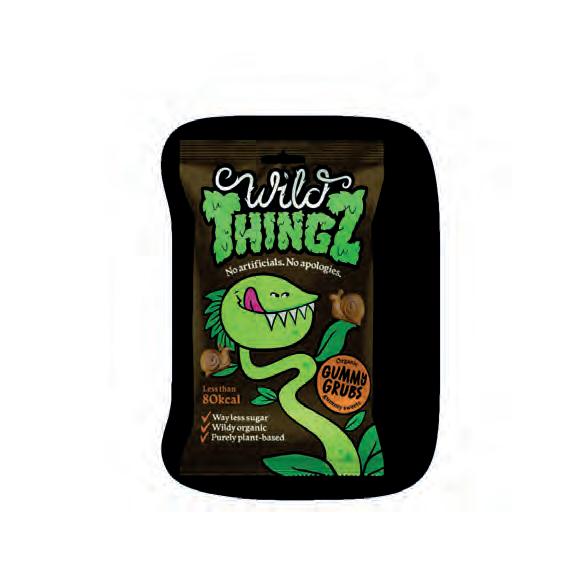








ROSIE GREENAWAY
editor@naturalbrands.co.uk



Change is afoot in the world of confectionery. Two words: Wild Thingz. The challenger brand hit the market with a bang in the New Year, determined to shake things up with ‘wildly tasty sweets’ and ‘none of the bad stuff’. Founder Fliss Newland speaks to us in our Sugar Reduction feature (p25) about redefining sweets and setting new standards for the sector. It’s the type of disruptive spirit our industry is brimming with and something we celebrate at Natural Brands – so much so that Newland also pops up in our Home Baking feature (p19) where she talks about how low-sugar heritage brand Just Wholefoods is still feeding ‘nostalgia with no nasties’ to its loyal cult following 40
years after founders Anne and James created the vegan jelly and custard range in their Cotswolds kitchen.
Another brand raising the bar for competitors is iChoc which is using groundbreaking tracking technology to achieve full bean-to-bar traceability right back to the individual farmer – all with the scan of a QR code (p5). It’s a major development that propels the chocolate market forward and sets a precedent for a cocoa industry free of greenwashing and ambiguity.
So join us as we enter 2025 – an era in which ethical brands mean ethical business and only sector-advancing products will win the hearts of conscious consumers.





Members of the Mānuka Charitable Trust (MCT) are calling out the sale of so-called ‘Australian manuka’ on the global marketplace as ‘deeply offensive’ cultural misappropriation, with plans in motion for a new trademark intended to protect the authenticity and provenance of one of New Zealand’s biggest exports. n Got news? Send your industry stories to Rosie Greenaway k editor@naturalbrands.co.uk n
IT IS the MCT’s position that true mānuka honey is only harvested from the specific species of Leptospermum scoparium which populates New Zealand’s North and South Islands and which researchers have found differs genetically from the Leptospermum scoparium growing on Australian soil.
Kristen Kohere, chair of the operational board which implements the strategies of eight MCT trustees (each one a senior representative of a Māori tribe and a guardian of native flora and fauna), explains that due to these strong DNA differences, any honey produced outside of New Zealand is not genuine mānuka and therefore should not be marketed as such.
Rather than ‘hop on the coat-tails of your cousin across the Tasman [Sea]’, Kohere suggests Australian producers ‘make the best of their own provenance’. “They’ve got beautiful landscapes, beautiful indigenous trees. They should not misappropriate someone else’s product but be genuine to themselves and authentic to their own country. They need to recognize how good their native biodiversity is and bring that distinctiveness to the world. We’d also like to see them honour their indigenous people and knowledge systems, which are hugely interesting.”
The latter point touches on a key issue for the MCT and its reason for pursuing the fight against fake mānuka: the word itself is intrinsically woven into Māori history and culture, evolved over thousands of years from New Zealand’s Eastern Polynesian roots.
“It has meaning to us; it’s a carrier of the life principle. That’s the meaning of the word. We will continue to enforce the view that the name pertains specifically to our endemic species.”
Kohere explains that beyond the fact that Australian trees and the honey they produce are incomparable to New Zealand’s due to
“... only our wines have managed to obtain GI protection; we haven’t had that system applied to our food categories”

scientifically established genetic differentiation, the act of applying a name ‘in the pursuit of commercial gain’ shows an ‘arrogance of assumption’ on Australia’s part. “That was enough to bring together all the significant leaders of Māoridom … and for the last six years to knuckle down and attempt to fight this, to raise awareness for consumers that

true mānuka comes from New Zealand and nowhere else. Trade laws were not set up to address cultural misappropriation. The other thing that we think should be noted is that the Aboriginal people of Australia themselves have been completely walked over because they will have their own traditional names for plants in the same species that are endemic to Australia. It’s old world behaviour that I don’t think consumers would agree with [but] our laws are yet to catch up.”
Drawing comparisons with Greek feta and French Champagne, she says the MCT would welcome a geographical indicator being assigned to mānuka to preserve its name, provenance, production methods and unique characteristics. “We think that’s the ideal fit for us. Unfortunately, [in] New Zealand … only our wines have managed to obtain GI protection; we haven’t had that system applied to our food categories.”
Kohere believes such commercial recognition for regional produce represents a mutual respect which must be embraced globally. “That maturity has yet to reach the exporters of Australian honey. It’s deeply offensive, it’s wrong and we will continue to fight them.”
Standing against food fraud is a process which takes time, and a long road lies ahead before a trademark can be formalized; licensees must agree to the terms and due diligence must be done to ensure existing quality guidelines and standards can be smoothly transferred to a new ‘badge of authentication for genuine mānuka honey’.
The MCT plans to spread ‘the story of mānuka from a cultural perspective’ to industry stakeholders, distributors and retailers far and wide. “Our ambition is that the wider story of the mānuka [tree] and mānuka honey becomes part of the customer experience.”
SETTING a precedent for a greenwashing-free chocolate industry, EcoFinia is utilizing groundbreaking tracking technology to demonstrate full supply chain traceability.
Its organic, Fairtrade, vegan label iChoc now comes with a ‘Farmer to Bar’ QR function enabling consumers to track the roots of their purchase back to one of 240 specific cacao growers in Yamasá, Dominican Republic.
The tool uses hundreds of precisely documented multi-source data elements visualized on an interactive world map – a system which took a year to develop. With no other chocolate brands known to be adopting tracking technology to this extent, the level of traceability is pioneering. While the system ‘has some inefficiencies’, according to EcoFinia MD Gerrit Wiezoreck, it’s a ‘step in the right direction’.
Full traceability, he explains, means going further than tracking chocolate to a single fermentation and drying centre. “We’re voluntarily leading the way, creating maximum transparency for our customers. It’s extremely difficult to trace ... cocoa due to the decentralized structure of the supply chain. The good players in the chocolate field were always able to name the cooperative from which they buy chocolate, but cooperatives are large entities consisting of thousands of farmers. There’s a lot of anonymity. We’re going the last mile that nobody so far was able to go. This last mile is the most complicated step, both digitally and administratively.”

Speaking on what the initiative means to cacao growers, he adds: “Transparency for the farmer means recognition and valuation; the farmer is seen for his or her hard work. This is the most important thing. This commitment has long-lasting effects. It brings steadiness, reliance, planability … a committed partnership.”
When Wiezoreck visited Yamasá, his project received support from local farmers. Economic barriers and humidity challenges mean many Dominican Republic farmers have never had the opportunity to taste chocolate, so the visit concluded with a sampling session. “The people creating the raw material are handing in wet beans; most of them don’t see the end product. For them, tasting a chocolate bar is highly rewarding. The product would not be possible without them.”
In a further commitment to Yamasá residents, each time a consumer tracks a bar, EcoFinia makes a donation to a large aqueduct project to bring clean water to the region. This ongoing support – which aims to hit €20,000 a year – follows an initial investment from the brand to kick-start construction of the aqueduct.
As part of its growth plans, iChoc has undergone a brand refresh featuring redesigned packaging, released new flavours (Cinnamon Bun and Jackfruit & Coconut) and secured an Oxfam listing.
NEW RESEARCH by Ethical Consumer encouraging the consumption of pulses has warned of the health hazards of tins lined with Bisphenol A (BPA), while praising ethical vegetarian and vegan brands for offering BPA-free alternatives.
Not just a load of old lentils refers to the purchase of tinned goods as ‘a buyer beware situation’, saying BPA should be eschewed due to its impacts on a range of conditions including asthma, obesity, some types of cancer and fertility.
The report doubles as a shopping guide, recommending that healthconscious consumers seek dried legumes to cook at home; minimallyprocessed, pre-cooked products in glass jars; tins marked ‘BPA-free’; or use the Soil Association mark for guidance.
Assessed across six categories –climate, animal products, workers, tax conduct, company ethos and agriculture – each brand is awarded an Ethiscore out of 100, determining which labels are ‘Recommended’ and which are ‘Brands to avoid’.
Filling the top half of the leaderboard and ranked as ‘Best Buys’ are Mr Organic (93), Essential (83), Hodmedod’s (83),
PESTICIDE WARNING

Clearspring (82), Suma (82), Infinity Foods (80), the Bold Bean Co (73) and Organic Kitchen (73). Biona achieved a lower score of 53 but earned a ‘Recommended’ stamp of approval for its organic certification and glass jars. While none of the broad spectrum of brands were graded as ‘poor’, Indus and KTC were noted as ‘Brands to avoid’
due to scoring zero in the workers and agriculture categories.
“Consumers need to be aware of some brands of tinned beans which might contain a chemical that is likely to be banned within a couple of years,” comments report writer Jane Turner, referring to a ban proposed by the European Commission in June 2024.
THE LATEST chemical residue data has been analyzed by Pesticide Action Network (PAN) UK and used to compile the organization’s annual Dirty Dozen list, designed to help inform the public’s grocery purchasing decisions.
The top three ‘dirtiest’ positions are occupied by citrus fruit (tangerines, oranges and lemons) but in a change to usual proceedings, this year’s summary extends beyond fruit and veg to include all food products of ‘non-animal origin’ which are most likely to contain two or more pesticide residues. This year sees the inclusion of white and brown bread, occupying seventh position with 54% of samples containing multiple residues.
The organization’s policy officer Nick Mole questions why pesticide cocktails
have ‘been allowed to double’ in a staple food ‘that most of us eat at least once every day’.
PAN UK believes that with the regulatory system addressing pesticides individually, this ‘not only ignores the potential risks … associated with pesticide mixtures found in one item (an apple, for example) but also those found in one dish (such as a fruit salad), let alone an entire day’s worth of food’.
In the context of the UK’s heavy reliance on imports, it highlights that according to the most recent available government figures, 55% of imported produce tested contained pesticide cocktails compared to 31% of UK foods, with 127 different pesticides found on imports versus 60 on domestic produce.

“Imported food was 2.5 times more likely to contain pesticides above the safety limit than UK-grown food,” says the report. “There are major concerns over the capacity of English ports to … detect issues, particularly if food imports increase significantly under new trade deals. Those wanting to reduce their exposure to pesticides should aim to buy British whenever possible.”










Try It For One Week



Sugar from our diets can lead to weight gain and it's hard to kick. Cut your sugar cravings with Chromium and Cinnamon Complex and join our No Sugar Challenge!
Chromium contributes to the maintenance of normal blood glucose levels. Cinnamon may help maintain healthy blood sugar levels and healthy weight.


Julie Goodwin Owner, Natural Health, Hertford
On 1 December 1997 I officially took over The Good Food Shop in Hertford. At the time, I also ran a therapy centre two doors down which was thriving. Expanding the number of treatments and therapists seemed like a natural next step, and the rooms above the shop were perfect. Running the shop itself? I thought that would be easy — a side project.
Then came day one; reality hit hard! I quickly realized I had absolutely no idea about running a shop. I didn’t know much about the supplements, specialty foods or bodycare products that filled the shelves. To make matters worse, one of my first customers was a loyal fan of the previous owner – a knowledgeable woman looking for ‘those little green tablets’ she always bought. I had no clue what she meant. When I told her I was the new owner she looked me up and down, exclaimed ‘My God!’, and walked out.
If that wasn’t enough, I discovered a homebrew section in the shop — a complete surprise. Customers started bringing in their musty brews, asking me where they’d gone wrong. I was utterly clueless and could only offer a sympathetic smile.
Then came sales reps. Some were genuinely helpful; some saw opportunity in my lack of experience. Before I knew it, I had overstocked the shop with products I didn’t need, tempted by bulk discounts and promises of ‘bestsellers’. My first trade show was like a wholefood candy store; I filled my cart with exciting new products and then worried later about where to put them or how to sell them.
The first six months were tough. I was exhausted and felt like I was trying too hard to keep everything together. A turning point came when I overheard one of my staff talking to the previous owner, saying I was useless. It stung. Instead of letting it defeat me, I was determined to prove them wrong. I set a goal: within my first year I would exceed the previous owner’s sales –and I did! I love a challenge. It was the motivation I needed. I knew that to succeed I had to become an expert. I started researching every product and ailment customers asked about. I became best friends with suppliers’ technical helplines, calling them multiple times a day to learn everything I could. When reps visited, I turned the tables and had them test my knowledge, product by product.
Gradually, I became confident in my ability to offer advice and recommendations. Customers began to trust me. If I didn’t know
something, I’d admit it and find the answer. This honesty built strong relationships with customers who appreciated that we were genuinely looking out for their needs.
Over time, we redecorated the shop, repurposing the upstairs rooms into therapy spaces, bringing in new therapists – many of whom are still with me today. The homebrew section was retired and we used that space for a ground-floor treatment room. We started hosting in-store events. In the late ’90s natural health was still a niche area and people were curious to learn more. The events were a great success, helping to build a community of like-minded individuals interested in improving their health naturally.
One of the most valuable lessons I’ve learned is the importance of personal connection. It’s often the little things that make a big difference: remembering a customer’s name; asking about their family; knowing the name of their dog. These small gestures can turn a sceptical visitor into a loyal customer. Providing excellent customer service has always been a priority. Listening, caring and going the extra mile builds trust and keeps people coming back.
I’ve learned that nothing stays the same. In ’97 we were guided by newspaper articles customers brought in; today they come armed with social media trends and ‘miracle’ supplements they’ve seen online. Staying up-to-date with trends and being ready to adapt has been essential to the shop’s continued success.
Running a small business also means being on call all the time. Even when I’m not physically in the shop, I’m thinking about stock levels and customer orders. It’s a constant balancing act, but one I’ve come to embrace.
Looking back on the past 27 years, the journey has been filled with highs and lows. There were moments of doubt and exhaustion, but also immense pride and satisfaction. Every challenge taught me something new, every success reminded me why I started this journey in the first place. I wouldn’t change a single minute.
Natural Health has grown into more than just a business; it’s a community, a place where customers, therapists and staff come together with a shared passion for wellbeing. I’m grateful for every step of this incredible journey. Here’s to many more years of learning, growing and thriving together.

As many vegan food brands’ fortunes decline, could independents help the category get back to unprocessed profit? Matt Chittock reviews the recent rollercoaster of plant-based foods
RRight now, vegan food is doing a pretty good impression of Icarus. Buoyed by the drive towards health sparked by COVID-19, the category soared with a wealth of innovative new products coming through around 2019 – often focusing on fake meat.
But ultimately it flew too close to the sun. There were just too many veggie burger variations clogging the shelves and the ensuing product overload sent the category plummeting just as food inflation ratcheted up RRPs beyond shoppers’ reach.
The fallout has been severe. In 2023 vegan food was one of the fastest selling grocery categories in terms of sales in the UK – but it has dropped a huge 13.6% year-onyear. Casualties litter the aisles, with Meatless Farm almost going bankrupt and plantbased meal company All Plants entering administration, leaving investors facing almost £70 million in losses.
Looking back, vegan food was hit by a perfect storm of rising inflation and customers cutting back on spending.
The Vegan Society acknowledges these problems, while remaining positive about the future of this ‘dynamic’ category. “As [vegan brands] contend with the cost of living crisis and a period of market stabilization following an influx of new products, some product categories have faced challenges recently,” admits trademark sales and marketing manager, Karen Spinner.

So, among the wreckage what can be salvaged from the sector? As the multiples slash their ranges, is it again time for the independents to shine?
The rush of new products that arrived five years ago was inspired by a genuine insight: that more shoppers are looking to reduce their meat intake. There was a proper buzz too. In 2019, the fanfare surrounding US meat-free pioneers Beyond Meat started a gold rush in the UK, with brands like Flora and Richmond releasing vegan versions of their products alongside challengers like La Vie and THIS. Innovation was high because, with interest rates at record lows, investors could afford to splash the cash on new recipes and


formats. Sadly, as the category became a staple in the multiples, market share moved away from the indies – most of whom had championed the category for many decades.
“It’s similar to gluten-free,” says Liz Chissell, nutritionist and manager at The Bay Tree in Ferndown, Dorset.
“Supermarkets now have whole sections focusing on it, where before shoppers would come to us. It’s made [the category] a lot quieter in our store.”
Using vegan ready meals as an example, she says, “Places like Iceland are now full of them, and people can buy them cheaper. Our prices were too high in those kinds of areas.”
Yet, one of the factors that has helped put the kibosh on vegan foods in the multiples could lead to a renaissance in the independents: health. In the last year, consumers have become much more clued-up on ultra-processed foods. They’ve realized some of the meat analogues that were hailed as game-changers are pretty far from natural.
These kinds of concerns have been echoed in recent research suggesting that people

who consume 10% more ultra-processed foods derived from plants have a 12% higher risk of cardiovascular disease related to diet.
Chissell says her store caters to vegans by offering a range of simple, natural ingredients and products that shoppers can use to cook from scratch, so they don’t get ‘any of the crappy additives’ found in many heavily processed plant-based items.
“We have a fridge with vegan products like butters, which are only lightly processed. We also offer the milk alternatives – even though they have them in supermarkets now too. Cooking from scratch is important so people can get the nutrients they need.”
Vegan, but make it natural
It’s in this healthier, more down to earth way that the vegan food category could still fly. Plus, Spinner is hopeful that lower prices and innovation could be a launchpad to stronger sales.
“Consumer interest in vegan products remains robust, driven by health, sustainability and ethical considerations,” she explains. “Price parity with animal products is proving critical to growth, and categories like vegan cream and cheese are emerging as rising stars in the sector.”
She also cites data from the Good Food Institute highlighting a 5.5% rise in plant-
based food sales across six major European markets, reaching over €5 billion. Germany leads the way, accounting for 40% of sales. There are also signs of ‘stabilization and expected growth in 2025’ for the UK.
So maybe the big vegan food crash was a necessary part of its evolution – removing the me-too brands and testing mainstream shoppers’ appetites for meat-free.
Plenty of people still want to be vegan in 2025 – or at least reduce meat consumption for the good of their health – and when it comes to sourcing healthy, unprocessed foods to help them achieve this, they’ll find them where they’ve always been: in the aisles of their local health food store.
Georgina Woods, owner of Rye Health Store, talks to Rosie Greenaway about the power of community loyalty when faced with the competition of big business
Holland & Barrett (H&B) moves next door to your indie health store, then quickly closes its doors permanently, unable to make a success of the site. What do you do? If you’re anything like Georgina Woods, owner of Rye Health Store, you seize the chance to take over H&B’s premises, strengthening your business and celebrating the spirit of a town which shuns chain retail.
Opened in 1982, Rye Health Store was always popular with locals, but shortly after Woods took ownership in 2018 their devotion was tested when H&B homed in on the High Street. Planting its flag on that particular mountain felt ‘100% intentional’ – and from conversations with fellow indies across the country it transpired that H&B had done the same to many others. “I think they look for a prime spot as close as possible to an existing health store.” But having retained the same customers for four decades, Rye Health Store held strong, with old-fashioned loyalty winning out over loyalty card points.
The swift takeover doubled the store’s square footage. With a wider shopfront and large stock room at her disposal, Woods was able to fulfil her dream of creating a therapy room at the back for bioenergetic testing, homeopathy and massage. The extra space also plays host
“The top thing now is definitely lion’s mane – big in coffee, cacao or drinks powders. Everyone loves it.”
to pop-ups with local producers, with ceremonial grade cacao being a recent tasting. “If there’s a new product, we try to get samples and tastings,” Woods says. “A few of the reps from the cosmetics companies help people with skincare.”
Where Rye Health Store had been limited by a ‘narrow and thin’ layout, the


new site offers more room for shoppers to browse and make spontaneous purchases of trending items. “I’ve noticed that people come in with magazine clippings – which is great, because then I learn. The top thing now is definitely lion’s mane – big in coffee, cacao or drinks powders. Everyone loves it. The other thing that’s becoming popular is shilajit. People are asking me for tallow which is supposed to be great for skin. Sometimes consumers are ahead of the game because they’ve seen it on Instagram or TikTok. When Michael Mosley did Just One Thing, everyone would come in to buy flaxseed which he spoke a lot about. Now every time someone buys it, we think about him.”
When fatigue sets in, customers can pause on chairs dotted about the dogfriendly interior, which add to the relaxed, inclusive environment. “People always comment that it’s nice to be able to sit down, especially older people.”
The High Street continues to enjoy good footfall, from Londoners looking for quaint Christmas shopping opportunities and tour buses coming from nearby Eastbourne, to Dutch, Belgian and German tourists driving over from the Continent (the town is listed in European guide books as the UK’s best attraction). Perhaps they’re also lured by the street’s stronghold of indie businesses, Boots being the only exception.
Like so many small business owners, Woods struggles with the effects of inflation and the discomfort of having to pass on the soaring prices of olive oil, coffee and chocolate to customers. But still they return, for the ambience and for her staff’s expertise. “I love what I do. I love it when people have come in for anxiety or stress, and they say: ‘Even just talking to you has helped’. That makes the job really great.”



GLASGOW-based workers’ cooperative Greencity Wholefoods has added a pop of colour to the city’s vibrant East End with a large-scale custom mural spanning the façade of its Fleming Street headquarters.
Greencity co-op members say the project is a testament to their ability to ‘work together successfully as a team’ and collectively achieve their goals. Through a process of planning, consultation and voting, Greencity commissioned artists from Cobolt Collective to design and bring to life a unique piece of artwork which communicates the story of their business, expresses their values, represents their team and shares their hopes for the future.
From references to ‘humble beginnings’ and nods to being underdogs or – ‘wee guys punching above our weight’ – the artwork features calls to action for locals such as ‘Wake up’ and ‘Stamp yer feet doon loudly’. Indicative of the members’ belief that ‘Ye cannae fight the good fight oan an empty belly’, the mural depicts several
wholefoods stocked by Greencity, including lentils, beans, pulses and baked goods.
The creation ‘brings a wealth of symbolism’ to Dennistoun, according to the Scottish Design Awards which spoke to designer Erin Bradley-Scott about the experience of bringing Greencity’s vision to life: “It was an absolute pleasure getting to know … members of Greencity, who kindly shared stories and memorabilia from the company’s impressive grassroots history and of their personal experiences working there. Their stories provided a wealth of inspiration which we captured through the use of bespoke poetry (written by Sorley Mackay), playful illustrations, simple geometric shapes and a contrasting colour pallet. The result is an authentic portrayal of Greencity’s bold, progressive and impactful presence in the food industry. From Cobolt to Greencity, more power tae ye.”
Going into 2025, Greencity will continue its monthly donations to chosen charities – Drill Hall Food Pantry being the next

organization set to benefit – and will exhibit at ScotHot (Stand 631; 26-27 February) to offer buyers an insight into the 5,000-strong range of vegetarian, vegan, organic, locally-sourced, Fairtrade, free-from and eco-friendly products it distributes. To help convey the benefits of becoming a Greencity customer, Minor Figures and Lemonaid will offer prospective customers hot and cold refreshments and a warm welcome.


AS A ‘critical part’ of its broader sustainability strategy, in late autumn Suma Wholefoods’ members partnered with Forus Tree – a social enterprise committed to improving biodiversity in the Calder Valley – to roll up their sleeves and get planting in support of reforestation efforts in their West Yorkshire home.
Ascending to the hills above Mytholmroyd, members of Europe’s largest equal pay co-op spent the day mulching and weeding rows of birch and horse chestnut trees – ‘vital work that enhances soil health, stabilizes temperatures and reduces topsoil erosion – key defences against the increasingly frequent heavy rains in West Yorkshire’.
“Mulching also boosts habitats for insects and other small wildlife, adding another layer to the ecosystem’s resilience,” comments Suma.
Fuelled by homemade soup, in the afternoon the group focused their efforts on planting species such as rowan, hawthorn and guelder-rose into hedgerows, each species playing a ‘crucial role’ in biodiversity. “Rowan, for instance, provides nectar for pollinators in
spring and berries in autumn, while hawthorn acts as a natural barrier for livestock and a shelter for birds. Guelder-rose, with its adaptability to Yorkshire’s damp climate, offers extra sustenance for wildlife,” adds the co-op.
Sharing his thoughts on the day, Ben Pearson, Suma’s sustainability coordinator, comments: “Volunteering with Forus Tree is always rewarding. Spending the day preparing trees and wild flowers for growth reinforces our commitment to the local environment, and it’s fulfilling to know our efforts are making a tangible difference. If others would like to experience the same, Forus Tree holds volunteer days at their nursery in Mytholmroyd every Friday.”
Credit: Quest 271
SIGNALLING a new chapter and a ‘positive step’ in the employee-owned distributor’s growth plans, Logan Holiday, CLF’s managing director, has announced a major move for 2025 which will see the business take residence in a large new warehouse on the outskirts of Southampton.
The relocation – which moves the team less than a mile from the existing site – will bring numerous benefits to the 210-plus staff who will enjoy ‘better transport links’ to and from the workplace and will allow CLF to continue offering ‘the best service possible’ to customers, expanding its range of innovative brands that give retailers ‘a competitive edge on the High Street’.
With 62,000 sq ft at their disposal (approximately 63% larger than the former building) and mezzanines making full use of the space, CLF’s buyers have the opportunity to increase stock holding capacity by over 120% and expand the number of new brands in their catalogue – particularly in chilled and frozen. “We will also have space for other initiatives to continue building on our first-class ‘Just in Time’ service,” adds Holiday.
“I am personally excited about the move because not only does it mark a new chapter in CLF’s history, it also marks a new chapter in my career with the company. The last time the business moved to a new premises was 2012, when I was still in college. Back then, I had a small part to play in helping design shelving and racking layouts for the new warehouse. Fast-forward 12 years and I am now heading up the entire project to move the business on a scale that we have not experienced before.”
The move is planned for Q2, and no disruption is expected for retailers.

n Mullein
We noticed a big increase in sales of mullein and a greater awareness generally of this fantastic herb last year. We have always stocked Nature’s Answer Alcohol-Free Mullein tincture 30ml, but it has been selling much faster than usual over this last cold and flu season. Because of this, we have also now taken on two new cough syrups by the same brand: Nature’s Answer Mullein-X Multi-System Cough Syrup 120ml and Nature’s Answer Mullein-X Kids Cough Syrup 120ml, both of which have been popular.
n Functional Foods
There has been a massive increase in sales of all sorts of functional foods over the last 12 months. We sell a greater range than ever of soft drinks, chocolate bars, lattes, hot chocolate powders and coffees containing key trending ingredients such as lion’s mane mushrooms, ashwagandha adaptogens, probiotics for gut health and CBD. We are constantly trying new products and are dedicating more shelf and fridge space to these than ever before. I think this is just because people are looking for ways to include these trending ingredients in their diets without adding another tablet, capsule or tincture to their daily supplements regime.
n Snacks
We have noticed an increase in the sales of what my colleague in the buying department calls ‘alternative snacking’ – products that either contain more unusual ingredients or are just a bit different from crisps and chips. We have never sold quite such an extensive range of interesting snacks as we do currently. Some examples include: Mr. Filbert’s Teriyaki Mochi Rice Bites; Other Foods Crunchy Artichoke Chips; Other Foods Crunchy Ladies Fingers Okra Snacks; Karma Bites Popped Lotus Seeds with Pink Himalayan Salt; and Purely Wild Garlic Plantain Chips. Some of these are lower in sugar and higher in fibre than other snacks, but not all. Perhaps consumers are just happy to try something new!
MULLEIN: fantastic herb

OATLY: ethical concerns
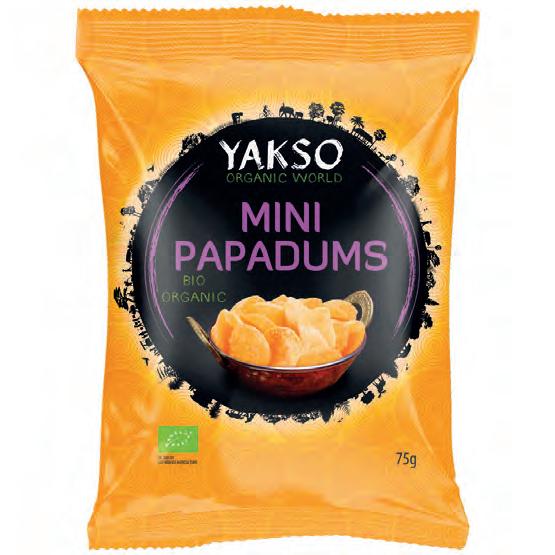

















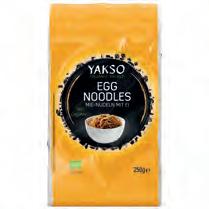




















CINNAMON, one of the oldest spices in the world, has been revealed as Viridian Nutrition’s Ingredient of the Year for 2025.
Each year, the supplement brand’s nutritional experts review the latest studies to determine an ingredient which will be ‘significant in the field of nutrition’ over the next 12 months.
Cinnamon has been selected due to the considerable amount of clinical research which has evaluated its positive impact on common concerns such as diabetes, obesity and cardiovascular and reproductive health.
Viridian notes that what’s known as ‘Ceylon cinnamon’ or ‘true cinnamon’ – derived from the dried inner bark of an evergreen tree in the laurel family, native to Sri Lanka –differs from that which is commonly used for culinary purposes and has been widely studied by the scientific community for its broad therapeutic benefits.
Blood sugar management and metabolism improvement are two ways cinnamon is believed to improve Type 2 diabetes –which affects one in every 16 people in the UK – while research has also demonstrated its uses for reducing fasting insulin levels and improving insulin sensitivity in women with diagnosed PCOS.
“We believe cinnamon is a game changer in reducing the risks of these long-term

health conditions,” explains Aimee Benbow, Viridian’s nutrition director. “Sugar intake is a major contributor to our 21st century chronic conditions. Unfortunately, the risk of long-term illnesses developing is heightened with the increased intake of added sugar in processed foods.
“Cinnamon is a natural botanical which has been widely studied for its role in helping with blood sugar control and in other areas of health and therefore a very relevant herb for addressing today’s health concerns. We believe cinnamon shows promise in positively influencing our health, and rightly deserves celebrating.”
Dr Siobhan Brennan, advisor to the brand, adds that the emerging evidence around cinnamon is ‘an exciting development’.


ESTABLISHING a new line of own-brand VMS, in January Apothecary 27 unveiled the first two SKUs in a collection of food supplements to be sold in its physical shop and online, each intended as a reflection of the retailer’s mission to support the health of the local community with ‘options they can trust’.
Launching first were Magnesium and Vitamin D – both ‘carefully crafted over the past year to deliver clean, ethical formulations’ by the store’s in-house nutritionist. Following closely behind are Mushroom Vitamin B Complex and Lemon Balm & Ashwagandha, due this spring.
In line with the team’s commitment to quality, sustainability and customer wellbeing, the range is housed in fully recyclable
packaging, with every step of the development ‘designed to ensure we deliver supplements we’re proud to display on our shelves’.
“From sourcing to production, we’ve prioritized clean and ethical practices that mirror our dedication to sustainability and transparency,” says store owner and CEO Joe Jackson. “We’ve decided to launch our range with two top sellers (Magnesium and Vitamin D) as these are by far our most requested in store. I’m excited to play around with the formulations for our B Complex which will contain carefully selected mushrooms to help complement the effects of the B vitamins. As usual, stress is always a big topic, so creating a nurturing blend for our customers has been really exciting. Watch this space.”

Among the nation’s bakers is a cohort of dessert connoisseurs seeking nostalgia with ‘no nasties’, and Rosie Greenaway has met just the brand to answer the brief – here she speaks to Just Wholefoods owner Fliss Newland about why tradition with a twist will never go out of style
TThe UK’s bakery and sweet treats sector is worth an estimated £9.7 billion and according to Straits Research the rising trend of healthy living, natural nutrition and organic products has only helped drive this figure.
As a nation, we appear somewhat obsessed with baking – so much so that the marketing world labelled January as National Baking Month. Half a Christmas fruitcake might still be lurking in the pantry, but this annual calendar moment brings an opportunity for budding bakers to continue the momentum and while away the winter months sifting, whisking and drizzling their way towards Pancake Day and Easter.
Perhaps they’ll take a leaf out of Marko Josipovic’s book – buying assistant at Planet Organic – and experiment with Daylesford’s indulgent Cherries in Kirsch or Figs in Cognac, destined for a frangipane tart.
Perhaps they’ll turn to the baking trends of 2025 for inspiration, in which the ‘sour power’ of sour cherries, sea buckthorn and rhubarb add a subtle sharpness to pastry items, and fennel seeds, basil and sage make an appearance in custard tarts and cheesecakes, blurring the lines between sweet and savoury.
Or perhaps they’ll turn to timeless, beloved British classics such as trifle, spurred on by The Great British Bake Off and the enduring scratch-cooking habits formed in lockdown.
Cult following
Occupying a somewhat retro spot in the dessert space is Just Wholefoods – an iconic 1985 brand which long-standing health stores will know well, now owned by Fliss Newland who acquired the business in late 2023 after a stint at Mondelez. Playing into the nostalgia and comfort of childhood foods, its baking portfolio comprises quick-set Vegan Jelly (Lively Lemon, Raw Raspberry, Tropical Twist and Simply Strawberry), gluten-free Custard Powder (Vanilla) and a remarkably clever gelatine alternative called Vegeset which sets any liquid clear, making the range a store cupboard staple for anyone leaning towards sweet sentimentality.
Upon acquisition, Newland gave the legacy brand a light refresh, dialling up its heritage with the brand story onpack, adopting ‘Lovingly founded in The Cotswolds’ as a slogan to pay homage to its ‘eco-champion’ founders Anne and James, making key information more prominent to ease the shopper experience, and unifying the range to appear more like a family.
Celebrating its 40th anniversary in 2025, Just Wholefoods has ‘a gorgeously loyal audience’ and a ‘niche, cult following’; countless customers have expressed relief that the range lives on, enabling them to introduce vegan favourites from childhood to their own kids.




Famed for what is omitted from its ingredient lists – artificial additives, gelatine and excess sugar – Just Wholefoods’ recipes have stood the test of time, relying on only natural ingredients to achieve bright colours and bold flavours in its Jelly and Custard Powder SKUs. “If you don’t want an overly sweet custard you can just sweeten it yourself to taste,” explains Newland. “Because the retail buyer has always been health food stores predominantly, I know that is quite a USP.”
Newland also praises the multipurpose Vegeset for its versatility and says although it’s possible to achieve ‘fun culinary’ results, it’s a product which is generally underutilized, with many amateur pastry chefs unaware it can be used to set occasion-led puds such as panna cotta, lemon posset and crème brûlée. So it’s gratifying when customers regale her with examples of how they’ve used Vegeset to whip up imaginative new flavours of jelly for a layered trifle, or share that they’ve created boozy jelly cubes as cocktail garnishes, serving them to impressed party guests. Jelly and custard might be retro, but a new demographic of baker is embracing tradition with a healthier twist, securing Just Wholefoods’ future for another 40 years and beyond.
When Clearspring launched its Matcha and Miso Maple Organic Oat Biscuits late last year, the brand tapped into the popularity of fusion flavours – a blossoming trend the baking world expects to grow throughout 2025 and one which the Internet already appears to love, with countless cupcake recipes calling for matcha buttercreams or glazes featuring hints of yuzu and miso. In this new line, Clearspring marries small-batch Scottish oats with the flavours of Canadian maple and Japanese miso and matcha, creating high-fibre, vegan baked treats to be savoured at home or on-the-go. Two years in the making, the biscuits are a new venture for the brand as it dips its toes into sweet snacks with this ‘unique, internationally inspired’ offer.

Buyer name: Ashish Jain
Store: Wickford Health Store, Essex
Stores: 1
Years retailing: 5
Why did you get into the natural health industry? My mother always gave my brother and I natural homemade herbal remedies to benefit our wellbeing. Rarely was I taken to the doctor, which shows that nature is a great healer. It has always been my dream to make a difference in the community through natural remedies. We’re not just a store; we’re an active part of the community. From hosting wellness workshops to supporting local farmers and artisans, we strive to foster a space where natural health and community thrive together.
Most effective POS? I strongly believe in word-of-mouth; our happy customers always bring family and friends into the store. My store manager Nila is very active with seasonal window displays, posters, social media and local chat groups.
Ashish Jain
Wickford Health Store, Essex

always look for purity and quality. Don’t be afraid to try something new to stay up-to-date with market trends.
What’s your favourite product and why? Nature offers a vast variety and I have many favourite products depending on individual circumstances. I like Hifas da Terra medicinal mushroom supplements for their superior quality and wide range of uses. I like MooGoo natural skincare for all ages.
How do you find new products? I regularly visit trade shows, read health magazines and engage with company reps and wholesalers. And from my lovely staff and customers – we always learn from each other.
Which issues are front of mind when sourcing products? Ethical, clean, no nasty junk and the highest quality products; where possible, ecofriendly with plastic-free packaging. We carefully source from trusted suppliers who share our commitment to sustainability and quality. All of our products are free from harmful chemicals and are selected to support both your health and the environment.
Top tips for ordering? Always order products from known, ethical suppliers and never choose a product for price –
What are your customers looking for in 2025? Medicinal mushroom supplements, collagen and probiotics are the most sought after this year.
What value do Natural Brands’ Buyer Boxes bring to your team? It’s always a pleasure to be greeted by such an amazing variety of natural products and good to trial new products in store.
“Always order products from known, ethical suppliers and never choose a product for price ... Don’t be afraid to try something new to stay up-to-date with market trends.”
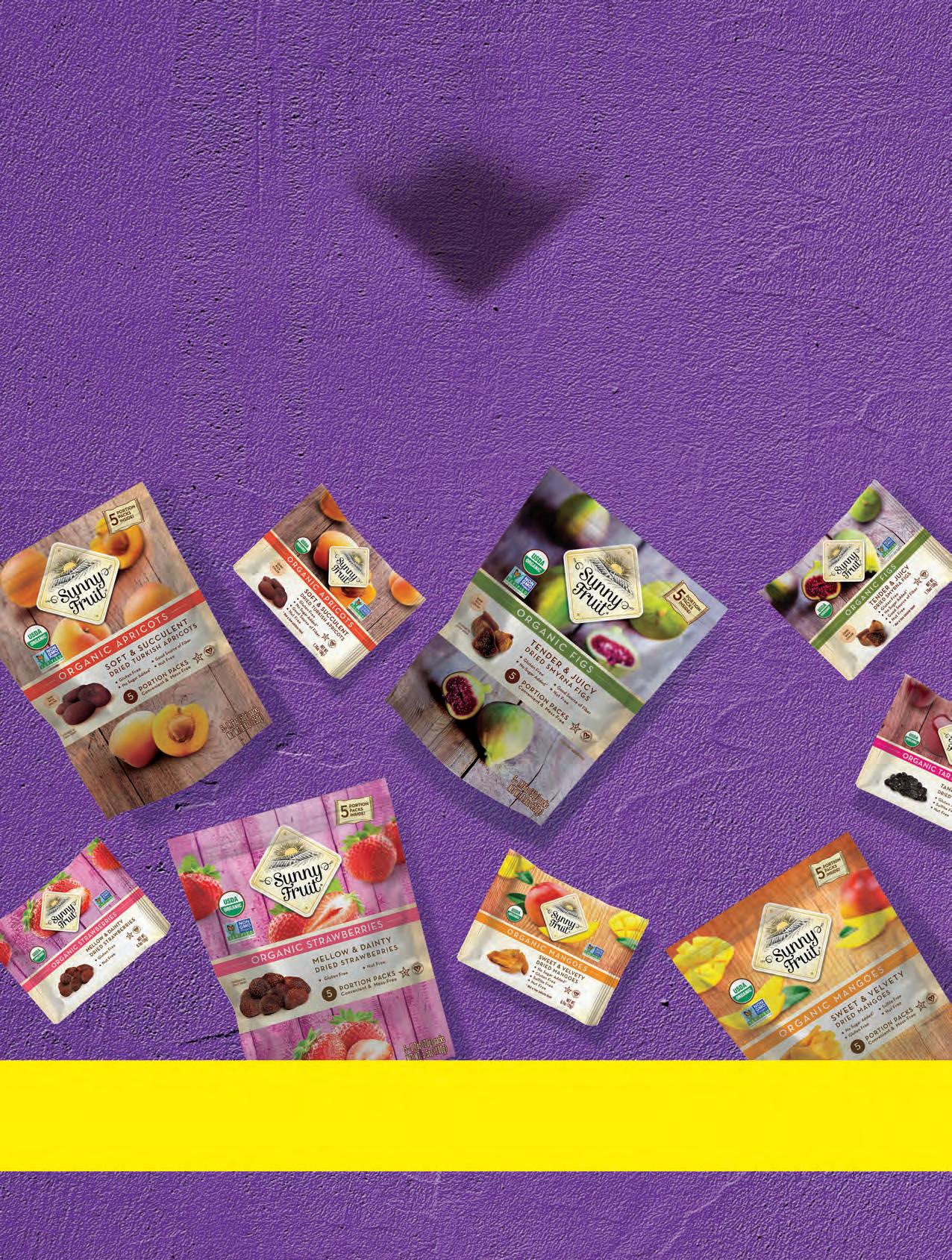




I couldn’t think of a better introduction to so many of our suppliers and an even greater opportunity to discover many more.”
Dulwich Health
If your business stocks living, beauty and food products, there is no better place to visit. Plus, you can network with your colleagues while hearing the latest trends and research.










Jane Wolfe dips a spoon into the growing sector of low- and no-sugar brands offering guilt-free alternatives for sweet-toothed consumers


DDespite sugar being linked to serious health concerns, Mintel has found that 90% of those with financial struggles still buy sweets, although 46% did cut back in the three months to April 2024, while 43% purchased reducedsugar sweets during this time, indicating a widespread desire to cut down on sugar.
In fact, the global sugar-free food and beverage market is forecast to hit $23.52 billion by 2029 [Mordor Intelligence], driven by rising diabetes cases (over 5.6 million in the UK), growing demand for low-calorie foods and the ‘sugar tax’.
In the year following the Government’s 2018 introduction of the Soft Drinks Industry Levy (SDIL) to reduce consumer intake of the white stuff, research published in the Journal of Epidemiology and Community Health found that daily sugar intake had fallen by 10.9g for adults and 4.8g for children. Further studies suggested obesity levels in girls aged 1011 reduced by 8% [PLOS Medicine] and hospital admissions for children with tooth decay fell by 5,638 [BMJ].
Also having a positive effect on consumer behaviour was the introduction in October 2022 of HFSS legislation to restrict the promotion of foods high in fat, sugar and salt. In the 12 weeks to 19 March 2023, Kantar noted a movement of £82 million away from HFSS products in the affected categories, with £34.4 million of this moving to non-HFSS alternatives.
“Wild Thingz is redefining sweets with half the sugar of major brands, entirely organic, plant-based ingredients and none of the junk”
However, nutritionist Suzie Sawyer cites worrying statistics showing that there are still 64% of UK adults living with obesity, and notes that excess sugar consumption is a major factor. In her experience, people often view sugary treats as a reward. “Perhaps they’ve worked hard, had a bad day or done some exercise. I also see a lot of women


struggling with menopause symptoms – one of which can be sugar cravings –partly because as oestrogen levels fall they struggle to balance blood sugar levels.”
So how can consumers enjoy a sweet treat with a healthier spec? Enter reduced-sugar sweet brand Wild Thingz which launched in January with Zesty Pests, Fruity Flyers and Gummy Grubs and is on a mission to turn ‘reluctants’ (those hesitant to give their kids sweets) into ‘rejoicers’ (those with no rules around sweets).
“Wild Thingz is redefining sweets with half the sugar of major brands, entirely organic, plant-based ingredients and none of the usual junk,” says founder Fliss Newland. “We’re offering fun sweets that are guilt-free and taste amazing, with bold packaging and exciting shapes that bring joy back to the category. Sugar, when used minimally and responsibly, delivers this perfectly.”
Newland’s previous role with confectionery giant Mondelez taught her the power of creating ‘iconic, beloved brands’. “I’ve taken that love for brandbuilding and put it into a product that aligns with today’s consumer values around health, transparency and sustainability,” she explains.
The SDIL has also led to more low- and no-sugar drinks brands coming to market, often tempting consumers with added

boosts and benefits. For example, sugarfree Dash Water fights food waste by using wonky fruit; TRIP’s no-added sugar, CBD-infused drinks help reduce stress and anxiety; and BetterYou’s low-sugar Magnesium Waters contain 180mg of elemental magnesium.
Launched in early 2024, Living Things low-sugar functional sodas are sweetened with fruit juice and come in four SKUs – Lemon & Ginger, Peach & Blood Orange, Raspberry & Pomegranate and Watermelon & Lime – providing 6.5g of prebiotic plant fibre and over two billion live cultures.
“The introduction of the sugar tax and HFSS legislation has significantly influenced the beverage industry,” says brand cofounder Ben Vear. “Many consumers are now more mindful of sugar content, leading to increased demand for low-sugar options. We anticipate continued growth in the sector. Innovations in natural sweeteners and functional ingredients will likely drive this trend.”
One all-natural sweetener is Coconut Palm Sugar from Organic Traditions. It boasts a caramel-like aroma and taste and, as it is minimally processed, has a lower glycaemic index than regular sugar, meaning it can lead to slower rises in blood sugar levels. It is also nutrient-rich, offering potassium, zinc and iron. While it is still sugar and should be enjoyed in moderation, it can be a good option for those wanting to avoid energy spikes, says the brand.
There are some sugar alternatives, such as xylitol and stevia, which have negligible effects on blood sugar, but Sawyer says that many will still trigger cravings and upset blood sugar balance, so there remains a need for education around this.
And with some brands disguising sugar content by using different descriptors – there are over 61 different names for sugar – brand transparency is crucial. “Our label tells the full story – just simple, honest ingredients,” says Newland. “We want our customers to feel confident about what they’re eating. What you see is what you get with Wild Thingz. No artificials, no apologies.”
Vear adds: “While awareness is growing, many consumers may not recognize alternative names for added sugars, such as fructose, sucrose or high-fructose corn syrup. This can lead to unintentional overconsumption of sugar, undermining health efforts. We prioritize transparency, ensuring our labelling is clear and our products contain no hidden sugars or sweeteners.”
“Many consumers are now more mindful of sugar content, leading to increased demand for low-sugar options”

OFFER: 15% OFF Veg
AVAILABLE VIA: Suma and Essential
OFFER: 20% OFF Rice Cakes, Pops
AVAILABLE VIA: Essential, Suma and Infinity (also 25% OFF Rice)
iChoc
OFFER: 20% OFF range
AVAILABLE VIA: Suma
OFFER: 15% OFF selected SKUs
AVAILABLE VIA: Essential and Suma
OFFER: 20% OFF Fruit and Veg
AVAILABLE VIA: Hunts
OFFER: 15% OFF Pancake Mixes
AVAILABLE VIA: CLF






OFFER: 15% OFF selected SKUs
AVAILABLE VIA: CLF and Suma
OFFER: 20% OFF range
AVAILABLE VIA: CLF, Diverse, Essential, Hunts, Infinity and Suma
Yakso
OFFER: 15% OFF selected SKUs
AVAILABLE VIA: Suma
OFFER: 15% OFF selected SKUs
AVAILABLE VIA: Suma
OFFER: 20% OFF range
AVAILABLE VIA: Essential, Hunts, Infinity and Suma
Yakso
OFFER: 15% OFF selected SKUs
AVAILABLE VIA: Suma
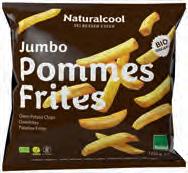






A Canadian natural care brand on a mission to raise the established standards of home and beauty care products.
> Eco-innovative and plastic-free packaging.
> Huge range of SKUs across a wide number of categories.
> Clean, naturally sourced ingredients, sustainably certified.
> Scientifically developed formulae for performance-proven products.
> Striking branding and high shelf appeal.
> Plastic-free ranges from suncare to deodorant.
> EWG Verified®
> PETA, vegan and cruelty-free.
> High-performance products.








A pioneering British brand committed to revoutionizing oral care since 2016 by replacing plastic waste with eco-friendly alternatives.
> UK-based and proudly sustainable.
> Dentist-approved and natural formulations.
> Clean, sustainably certified ingredients.
> A zero-waste, plastic-free approach.
> 100% natural ingredients.
> Vegan and cruelty-free.
> Certified COSMOS organic.
> Ethical Consumer Best Buy.
> Wide range of SKUs available, including kids’ range.








Rooted in conservation. Hand-grown with a mission. IBIS Rice is proving that food production doesn’t have to cost the Earth.
IBIS Rice at a glance:
> Unique direct trade model with sustainability at its heart.
> Empowering farmers to protect the environment while paying them a 70% premium.
> Safeguarding diverse ecosystems, reducing CO2 emissions and protecting wildlife, including the giant ibis.
> Suppor ted by conservationist and TV presenter Chris Packham.
> Organic for the same price as conventional brands.
> Cross-category offering.
> High rate of sales.
> Regular promotions.
> Strong consumer marketing.







Fairly traded, dairy-free chocolate with category-leading traceability.
> Fairtrade and organic.
> Seven SKUs to choose from, including white chocolate varieties – unusual in the category.
> Farmer-to-bar traceability – first in the category.
> New look for 2025.
> Organic and Fairtrade.
> Vegan-friendly.
> Unique farmer-to-bar tracking.
> Money donated to support projects in the Dominican Republic.
> New Cinnamon Roll bar.







Lovingly founded in the 1980s in the Cotswolds, this heritage brand is back with a renewed range of vegan sweets and baking products for 2025.
> UK-based brand.
> Category trailblazers in vegan and natural baking.
> Heritage brand with strong customer loyalty.
> Award-winning range.
Why stock Just Wholefoods?
> Vegan.
> No ar tificial colours/flavours/ sweeteners or gelatine.
> Strong RRPs.
> Heritage appeal.
> Bold new look for 2025.



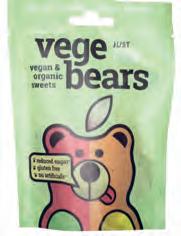
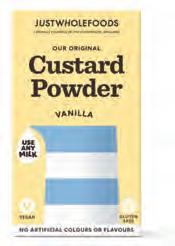





A lot of thought went into these moreish organic oat and granola bars. They’re delicious and made from responsibly sourced, non-GMO ingredients in a nut-free facility.
> B-Corp company – triple A standard.
> Products made using regenerative organic oats.
> Free from all major allergens.
> Award-winning product.
> Vegan, organic and kosher.
> Free from all common allergens.
> Great source of fibre.
> Multipack and single-serve formats.
> Strong shelf appeal.







Inspiring consumers to live their most vibrant life by harnessing the power of traditional nutrient-dense foods from all around the world.
> Products that merge tradition and innovation.
> Convenient and versatile product range.
> Delivering nutritional benefits in every spoonful.
> Sustainably sourced ingredients with no added sulphites, fillers, preservatives or artificial sweeteners.
> Vegan, organic and kosher.
> Dairy- and gluten-free.
> Great source of essential vitamins and minerals.
> Strong on-shelf presence.
> Long shelf-life.







Par-baked, artisanal bread made in Belgium’s only carbon-neutral organic bakery
Traditional working methods, long resting and rising times, expert bakers and an enormous amount of passion. This is what has set Pur Pain apart since 1911.
> Tastes like freshly baked every time.
> Offers ultimate convenience.
> All products bake in oven in less than ten minutes.
> Made with genuine love and passion.
> Unrivalled taste and texture.
> Unique 40-year sourdough culture.
> Made using the best organic ingredients with no additives.
> Long-life MAP format –up to 50 days.
> Enjoy the taste of home-baked bread every day.


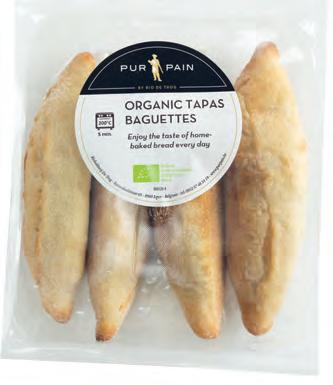



Organic dried fruit for nutritious snacking. Grown naturally, sourced ethically and sun-dried for ultimate sweetness.
> Convenience-focused range.
> Organic and ethically sourced.
> Packed at source ensuring ultimate quality and freshness, nothing artificial added.
> Ideal for on-the-go snacking and lunch boxes.
> Organic and sulphite-free.
> Wide range available in impulse snack packs and multipacks.
> Shelf-ready display trays.
> Strong on-shelf presence.
> Highly competitive RRP.

Available via:






Trafo has been dedicated to crafting premium organic crisps for over 30 years. Its approach is simple yet exceptional. As a heritage brand with deep roots in quality and sustainability, Trafo continues to set the standard high for organic snacking.
> Prepared using traditional methods.
> A commitment to organic excellence.
> A diverse selection of potato, tortilla and vegetable crisps, all made with care.
> Organic, all-natural ingredients.
> Unique SKUs available such as coconut-oil fried crisps.
> Wide range including vegetable and legume snacks.
> Handcooked, extra thick cut crisps included.
> Single-serve and sharing bags available.







An experienced pioneer of organic chocolate, lovingly crafted by fourth-generation chocolatiers in the heartland of Germany.
> Long-standing heritage brand.
> Ethically sourced, finest cocoa from South America.
> Beautifully designed, stand-out packaging.

> Finest organic chocolate.
> Rainforest Alliance-certified.
> No emulsifiers or palm oil.
> Over 40 varieties to choose from, including over 20 vegan-friendly bars.
> Exciting NPD launching in 2025.







It’s wild that sweets are so artificial. Wild Thingz doesn’t intend to stand by sweetly. Less junk. More punk. That’s the essence of Wild Thingz.
> New brand challenging the concept of confectionery.
> UK-based company. Female founder.
> Treat-size and sharing bags available.
> Wide distribution.
> Wildly organic and plant-based.
> Fruity, zesty flavours delivered the natural way.
> Half the sugar of the top -selling sweets brands.
> No ar tificial ingredients and no gelatine.
> Fun, bold packaging with shelfready display units.
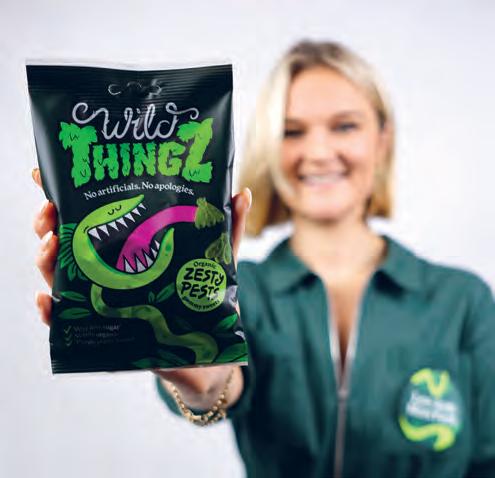









Yakso at a glance:
Yakso offers a premium range of organic, Asian cooking ingredients designed to bring authentic world flavours into our homes.
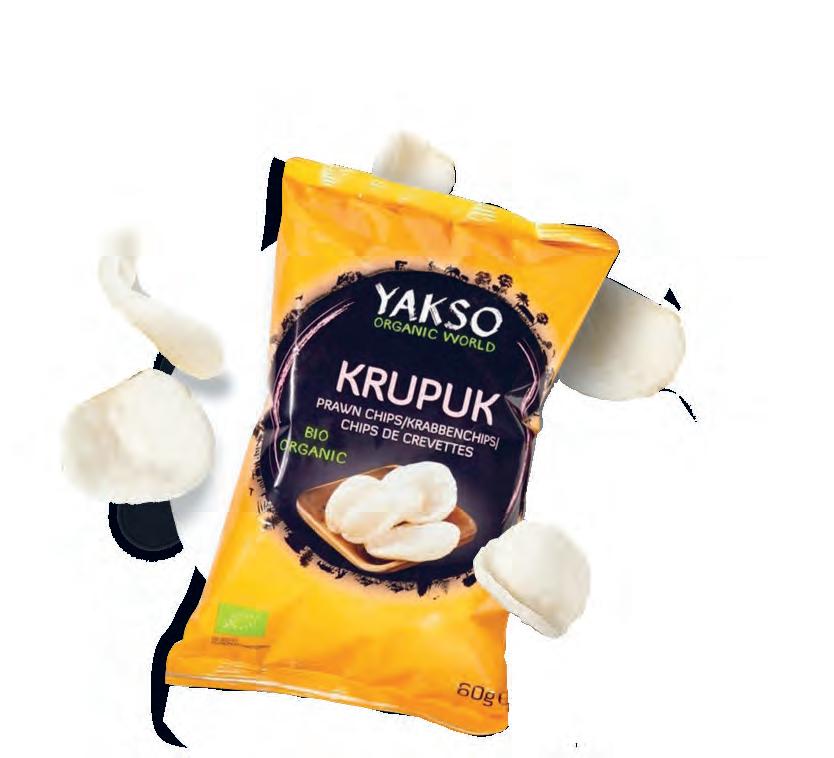

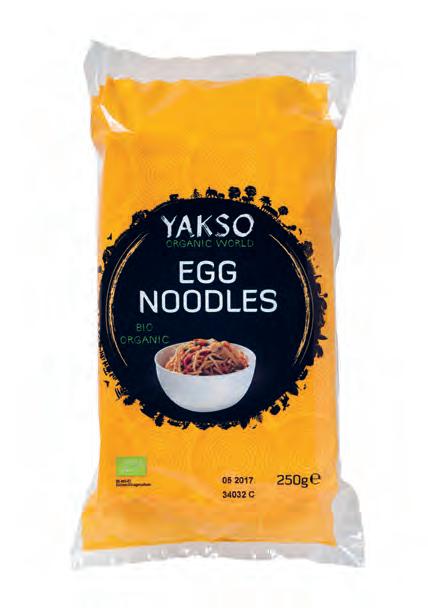







Making BPA-free easy and convenient. A wide range of incredibly tasty organic products all packaged in fully recyclable glass jars.
> Satisfies a growing consumer preference.
> Wide range – from baked beans to mayonnaise, strawberry jam to pickles.
> Glass jars provide significant premium appeal vs. tin cans.
> Organic.
> Plant-based.
> Superior quality products with no artificial ingredients.
> Wide range of store cupboard essentials.
> BPA-free glass jars.
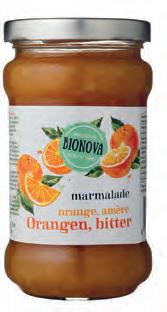





1
2
3



Upgrade your freezer space with bio inside, offering a vast range of high-quality, convenient organic products at competitive prices.
> One-stop shop for all your frozen needs.
> Fruit and veg to herbs, veggie nuggets and pizzas.
> Carefully selected produce for premium taste.
> Freshly frozen at harvest to preserve vital vitamins and minerals.
> Handy packaging sizes for ultimate convenience.
Why stock bio inside?
> Organic.
> All-natural ingredients.
> Wide range of products.
> Reduces food waste.
> Highly competitive RRPs.










Pairing healthy, functional and sustainable nutrition with unbeatable flavours and convenience.
> The best organic ingredients traditionally fermented.
> Made in-house at a purpose-built fermentary.
> Fresh-sour taste sensations full of active cultures.
> Fresh, clean packaging design.

> Range of nine unique SKUs for any eating occasion.
> Organic and plant-based.
> Naturally fermented and unpasteurized.
> High repeat purchase rate.
> Free from additives or added sugar.
> Plastic-free packaging.





A leading Spanish producer of award-winning dairy alternative products, renowned for driving innovation since 1991.
> Firmly rooted in sustainability.
> Strong eco credentials.
> Almonds from dryland farming, reducing water usage.
> A heritage brand celebrated for superior quality.
> Dedicated to offering sugar-free alternatives.
> Organic and plant-based.
> Wide appeal: Almond, Oat, Hemp, Cashew and Sugar Free varieties.
> Barista m!lks and culinary creams available.
> Innovative Keto range.
> Recyclable packaging.











Offering discerning consumers a comprehensive range of Demeter-certified and organic frozen products for those who value quality and sustainability.
> Continued pioneers in sustainable farming.
> Strong support of organic and biodynamic farming across Europe.
> Consistent presence in independent retail for more than 25 years.
> Bulk food service items available on request.
> Organic and Demeter-certified.
> Heritage brand appeal.
> Exclusive to independent retail.
> Wide range of SKUs available.
> Frozen for ultimate convenience.








ICHOC
Cinnamon Roll Vegan Chocolate, 80g





iChoc is back with a fresh new look in 2025, alongside this incredible new Cinnamon Roll flavour.
High quality Ceylon cinnamon meets 100% traceable, fineflavour Fairtrade cocoa, with pieces of wafer and crunchy nib sugar making this chocolate a very special experience for vegans and non-vegans alike. All this wrapped up in ecofriendly, plastic-free packaging.
Product Highlights:
- Organic
- Vegan
- Fairtrade
- Plastic-free
- Unique farmer-to-bar tracking
RRP: £3.29
MADEGOOD
Morning Bar Single Serve Impulse Bars, 30g





Breakfast sorted. MadeGood’s popular Morning Bars are now available in a single-serve, impulse format to provide consumers with out-ofhome, on-the-go options that complement the much-loved multipack format on which the brand has built its reputation.
Available in two flavours: Blueberry and Choc Chip
Product Highlights:
ORGANIC TRADITIONS
Supergreens with Cucumber and Melon, 100g
PUR PAIN
Organic Sandwich Roll 3-pack, 150g






A unique green superfood blend of nutrient-dense ingredients including alfalfa, barley, wheat, kamut, oat grass, chlorella, spirulina, moringa, matcha, acacia fibre and turmeric extract.
Packed with over a billion heat- and shelf-stable live biocultures and bursting with fibre, vitamins and minerals, this is delicately flavoured with cucumber and melon to make it ideal in smoothies or simply with water.
Product Highlights:
- Free from 9 common allergens
- Organic
- Vegan - Kosher
- Triple A Standard B Corp
RRP: £1.59
- 100% organic
- Kosher, dairy, gluten-free
- Source of vitamins and minerals
- Packed full of biocultures
- Long shelf-life
RRP: £13.99




Artisanally crafted in Belgium’s only carbon-neutral bakery, this is a delicious organic sandwich roll with a soft, airy texture, delicately topped with sesame seeds.
The roll boasts exceptional flavour, making it an ideal choice for crafting the perfect sandwich. Par-baked, it simply requires baking in a preheated oven at 200°C for three to four minutes for the taste of fresh bread at home.
Product Highlights:
- Organic
- High quality product
- Free from additives
- Long-life MAP packaging
- Carbon-neutral bakery
RRP: £3.69
VIVANI
Wafer Praliné Impulse Bar, 40g






For all nougat fans, the classic VIVANI Wafer Praliné Milk bar is now finally available in a handy and desirable 40g impulse format.
The sweet and familiar taste of creamy hazelnut nougat in perfect harmony with crunchy, baked wafer pieces make this bar a real on-the-go highlight.
Product Highlights:
- Organic
- Plant-based inner foil
- Direct trade cocoa
- Established brand
- High quality
- Convenient on-the-go format
RRP: £1.79
BIO INSIDE
Organic Frozen Sweet Potato Chunks, 400g





These farm-fresh sweet potato chunks from bio inside are a perfect and versatile accompaniment to any meal.
Coming directly from the field, all bio inside products are immediately deep-frozen to preserve all their important vitamins and flavours, thus providing an unrivalled flavour profile that is sure to excite the taste buds.
Product Highlights:
- Organic
- Plant-based
- Frozen for ultimate convenience
- Simple to prepare
- High quality taste
RRP: £3.49
NATURAL COOL
Oven Potato Chips, 1.25kg





Natural Cool has been a staple of indie health store freezers for years, with the brand trusted for its high quality organic and biodynamic products and unwavering commitment to the independent trade.
2025 sees a full rebrand of this beloved range, starting with potato products before moving into fruit later in the year. These jumbo chips are wonderfully convenient, deliciously moreish and freshly packaged to appeal from the freezer shelf.
Product Highlights:
- 100% organic
- Thick cut
- Convenient format
- Heritage brand
- Fresh new look
RRP: £8.99
WILD THINGZ
Zesty Pest Organic Gummy Sweets, 130g





More punk. Less junk. Welcome to Wild Thingz. This brand is causing quite a stir with its new range of organic, plant-based sweets that boast nothing artificial alongside half the sugar of the UK’s top-selling brands. With three SKUs available in both 130g sharing bags and 25g treat-size format, they look sure to be a hit and are a range to quickly get on shelf for 2025.
Product Highlights:
- Organic
- Plant-based
- No artificial ingredients
- Strong branding
- Less than 80kcal per serving
RRP: £3.49

Coming from a ten-year career in retail, Natalie manages the Buyers’ Club and Sample Box scheme, introducing health store buyers to the latest new products each quarter.

With a foundation of lasting relationships in the natural and organic arena, Louise communicates and networks with indie retailers to support Natural Brands Magazine and its exclusive Buyers’ Club.

With over a decade in publishing, Rosie is an experienced editor, presenter and awards judge with a special interest in organic food, green beauty and sustainable living.

Martin Hiscox Commercial director
Formerly a retail buyer in F&B, Martin now heads up Natural Brands’ commercial arm, helping natural and organic brands maximize their industry reach and achieve their UK growth goals.

Experienced in comms and strategy, Tom oversees publishing. A former teacher, he uses his passion for education to spread the organic message and connect buyers with cutting-edge natural products.

Sub-editor and feature writer
Jane has over 25 years’ experience in trade publishing, most recently focusing on natural and organic food and drink, skincare, sustainability and the environment.
Natural Brands Magazine exists to support independent retail by publishing news, insights, interviews, features and product launches within the natural and organic industry.
Views expressed by contributors are their own and do not necessarily reflect the views of our publisher or editor.
Contributors operate independently of advertising; content is published solely on its editorial value.
EDITORIAL
Editor: Rosie Greenaway editor@naturalbrands.co.uk
Sub-editor: Jane Wolfe jane@naturalbrands.co.uk
ADVERTISING
Interested in discussing advertising opportunities?
Publisher: Tom Smart tom@naturalbrands.co.uk
DESIGN
Designer: Stuart Moody h3opublishing@gmail.com
PRINTED BY Cambrian Printers, Aberystwyth
PUBLISHED BY Natural Brands UK 20-22 Wenlock Road London N1 7GU
© Natural Brands UK 2024 ISSN 3033-4012
• Are you opening a new store?
• Would you like to request support from a brand?
• Want to suggest improvements for your favourite brand?
• Ask for information regarding ingredients or certifications?
• Need assistance placing an order with a wholesaler?
• Or offer general feedback?

